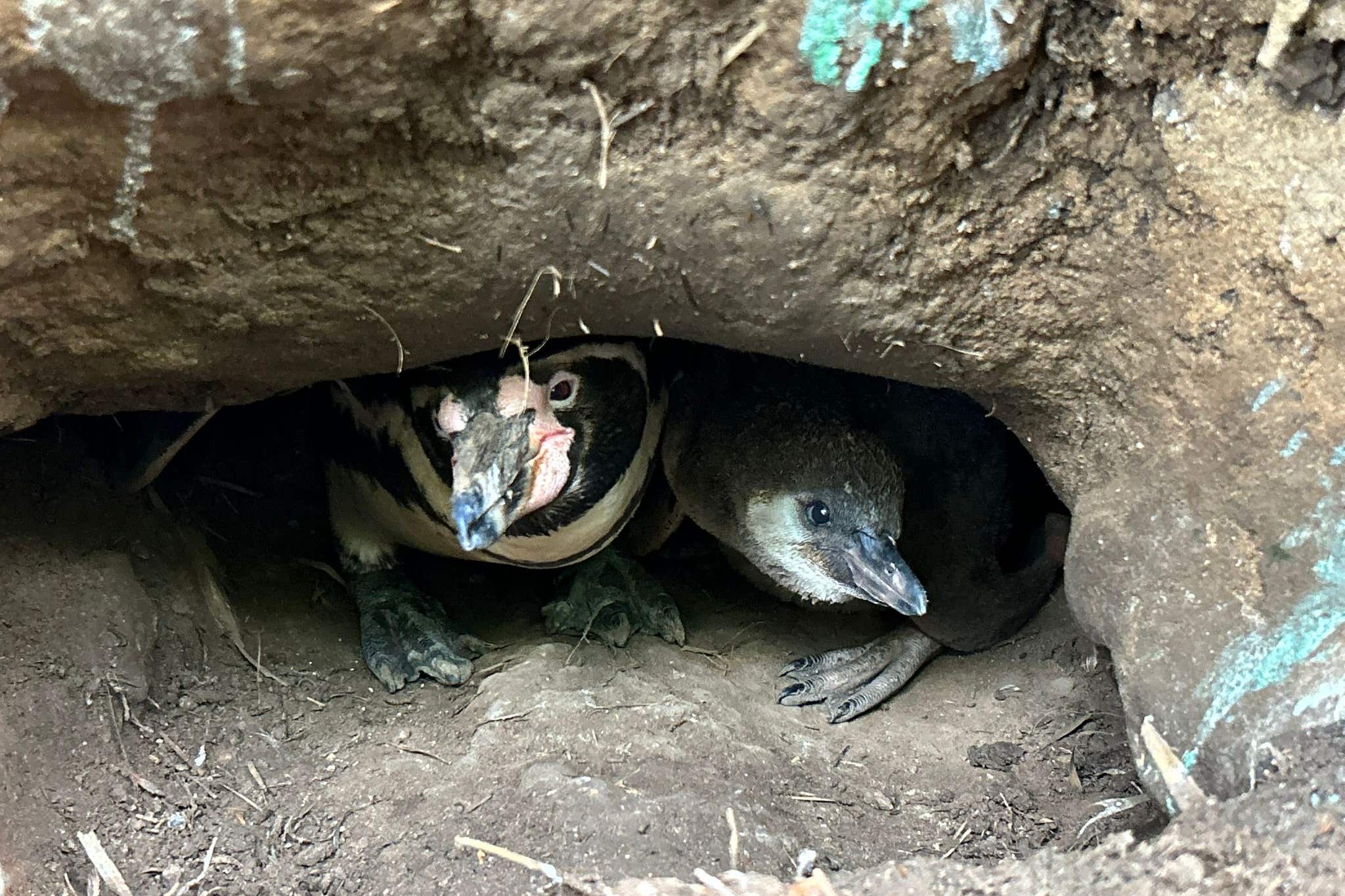Woburn Safari Park celebrates birth of two Humboldt penguin chicks
The chicks are named Wasabi and Sprout and were born to experienced parents Leaf and Salsa.

Your support helps us to tell the story
From reproductive rights to climate change to Big Tech, The Independent is on the ground when the story is developing. Whether it's investigating the financials of Elon Musk's pro-Trump PAC or producing our latest documentary, 'The A Word', which shines a light on the American women fighting for reproductive rights, we know how important it is to parse out the facts from the messaging.
At such a critical moment in US history, we need reporters on the ground. Your donation allows us to keep sending journalists to speak to both sides of the story.
The Independent is trusted by Americans across the entire political spectrum. And unlike many other quality news outlets, we choose not to lock Americans out of our reporting and analysis with paywalls. We believe quality journalism should be available to everyone, paid for by those who can afford it.
Your support makes all the difference.Woburn Safari Park is celebrating the birth of Wasabi and Sprout, two Humboldt penguin chicks.
The chicks were born to experienced parents Leaf and Salsa, who have raised a number of chicks at the safari park in Bedfordshire as part of a European breeding programme.
Keeper Lily has been carefully watching over the growing brood and said: “From the very beginning both chicks looked really happy and healthy and very vocal – you could hear them calling from the nest all day.
“They hatched at the beginning of April and were quite curious from the start.
“They were soon poking their heads out, and keeping a keen eye on what the keepers were up to when we’d stop by to feed their parents.
“They’re just starting to emerge from their burrows now, and will have their distinctive brown-ish grey colouration for the first year or so, so visitors should be able to tell them apart from the black and white adults.”
Chicks Wasabi and Sprout will be dependent on their parents for food until they are around six months old.
In the wild, Humboldt penguins reside in South America and nest on islands and rocky coasts.
Humboldt penguins are listed as “vulnerable” on the International Union for Conservation of Nature Red List, meaning that breeding pairs such as Leaf and Salsa play an important part in maintaining a sustainable captive population of the penguins long term.
According to the International Union for Conservation of Nature, the population of Humboldt penguins stands at around 23,800 and is in decline.